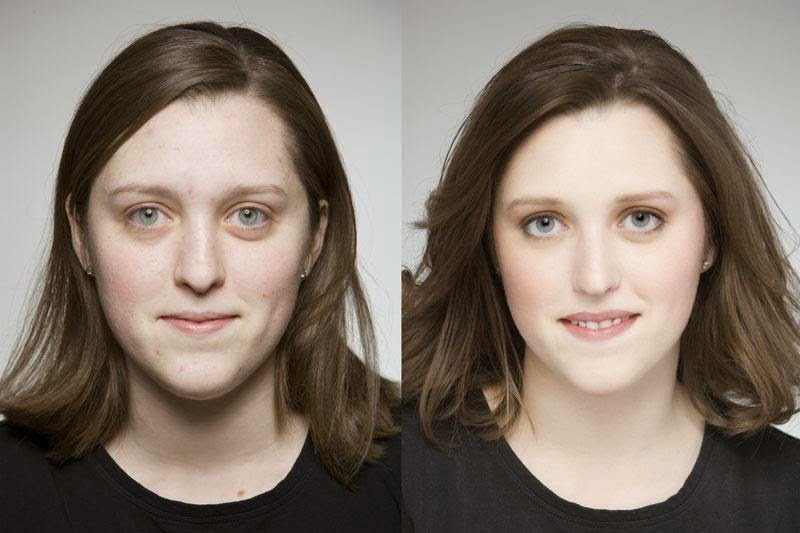The minimum age for facial feminization surgery (FFS) is a common question among transgender women and non-binary people who want to align their facial features with their gender identity. FFS is a type of cosmetic surgery that can change the shape and size of the forehead, nose, chin, jaw, and Adam’s apple, making them more feminine and less masculine. FFS can have a positive impact on the self-esteem and well-being of people who experience gender dysphoria, which is the distress caused by the mismatch between their assigned sex and their gender identity. However, FFS is also a major surgery that involves risks, costs, and recovery time. Therefore, it is important to know the minimum age for FFS and the factors that influence this decision. In this blog post, we will explain what the minimum age for FFS is, why it is set, and what you should consider before undergoing FFS.

Table of Contents
What is the minimum age for Facial Feminization Surgery?
According to most sources, the minimum age for FFS is 18 years old. However, some surgeons may recommend waiting until 21 years old for most patients. The reason for this age limit is to ensure that the patient has reached physical and psychological maturity before undergoing FFS. Physical maturity means that the facial bones and soft tissues have stopped growing and changing, which usually happens around the age of 18. Psychological maturity means that the patient has had enough time to explore and confirm their gender identity, which may take longer for some people. The age limit also ensures that the patient has the capacity to make informed decisions and consent for treatment, which is a legal and ethical requirement for any surgery.

Why is the minimum age for FFS important?
The minimum age for FFS is important for several reasons. First, it protects the patient from undergoing a surgery that may not be necessary or beneficial for them. Some people may experience changes in their gender identity or expression over time, especially during adolescence and young adulthood. Therefore, undergoing FFS at a young age may result in regret or dissatisfaction with the outcome later in life. Second, it prevents the patient from having complications or poor results from the surgery. If the facial bones and soft tissues are still growing or changing, the surgery may not achieve the desired effect or may cause problems such as asymmetry, nerve damage, or infection. Third, it allows the patient to have other options for gender affirmation before resorting to surgery. Some people may find that hormone therapy, makeup, hair styling, or clothing can help them achieve a more feminine appearance without the need for surgery. These options may be safer, cheaper, and less invasive than FFS.

What should you consider before undergoing FFS?
Before undergoing FFS, you should consider several factors, such as:
- Your goals and expectations: You should have a clear and realistic idea of what you want to achieve with FFS and what the surgery can and cannot do for you. FFS can enhance your facial features and make them more feminine, but it cannot change your identity or personality. You should also be aware of the possible risks and complications of the surgery, such as infection, bleeding, scarring, asymmetry, nerve damage, or dissatisfaction with the results. You should discuss your goals and expectations with your surgeon and make sure you understand the procedure and the recovery process.
- Your surgeon and clinic: You should choose a qualified and experienced surgeon who specializes in FFS and has a good reputation and track record. You should do your research and consult with different surgeons before making your decision. You should also ask to see their before and after photos and reviews from previous patients. You should also choose a reputable and accredited clinic that has the necessary facilities and equipment for the surgery. You should visit the clinic and check the hygiene, safety, and comfort standards.
- Your health and lifestyle: Your overall health and lifestyle can also affect the outcome and recovery of FFS. If you have any medical conditions, such as diabetes, high blood pressure, or heart disease, you may have a higher risk of infection, bleeding, or poor wound healing. You should inform your surgeon about your medical history and any medications you are taking. You should also follow their pre- and post-operative instructions carefully and avoid anything that can impair your healing, such as smoking, drinking, or taking drugs. You should also eat a balanced and nutritious diet, drink plenty of water, and get enough rest and sleep.
- Your support system and resources: FFS is a life-changing surgery that can have a significant impact on your emotional and social well-being. You may experience depression, anxiety, or loneliness after the surgery, especially if you face discrimination, rejection, or isolation from your family, friends, or society. You may also face financial difficulties, as FFS can be expensive and not covered by insurance in some countries. Therefore, you should have a strong support system and resources to help you cope with the surgery and its aftermath. You should have someone to accompany you to the hospital and stay with you for the first few days after the surgery. You should also have someone to provide you with emotional support and comfort, such as a therapist, a counselor, or a support group. You should also plan your budget and finances and look for ways to reduce the cost of the surgery, such as traveling to a cheaper country or applying for a grant or a loan.

Conclusion
FFS is a type of cosmetic surgery that can make the face more feminine by altering the shape and size of certain features. FFS can help transgender women and non-binary people who want to reduce their gender dysphoria and feel more comfortable with their appearance. However, FFS is also a major surgery that involves a minimum age limit and other factors that influence the decision to undergo it. The minimum age for FFS is 18 years old, but some surgeons may recommend waiting until 21 years old. The reason for this age limit is to ensure that the patient has reached physical and psychological maturity before undergoing FFS. Before undergoing FFS, the patient should consider their goals and expectations, their surgeon and clinic, their health and lifestyle, and their support system and resources. FFS can be a rewarding and transformative experience that can improve the quality of life and happiness of the patient.
Visit the Dr.MFO Instagram profile for examples of successful Surgeries. Contact for free consultation.
Frequently Asked Questions
What are the criteria and guidelines for facial feminization surgery eligibility and consent for minors?
Facial feminization surgery (FFS) eligibility typically involves a thorough assessment by a multidisciplinary team. Minors seeking FFS require parental or guardian consent, unless they are emancipated. The decision considers physical and psychological readiness, gender dysphoria, and overall health.
How does facial feminization surgery affect the growth and development of the facial bones and soft tissues in young patients?
FFS reshapes facial features, altering bone structure and soft tissues. Surgical techniques vary but can include forehead contouring, brow lifts, and tracheal shaves. While FFS can enhance feminine appearance, long-term effects on growth and development remain an area of study.
What are the benefits and risks of facial feminization surgery for adolescents and young adults with gender dysphoria or incongruence?
Benefits include improved gender affirmation, self-esteem, and mental well-being. Risks may include bleeding, infection, poor healing, implant migration, and anesthesia complications. Ethical considerations involve balancing benefits and risks while ensuring equitable access to care.
How does facial feminization surgery impact the psychological and social well-being of young transgender or non-binary individuals?
Studies suggest that FFS positively affects mental health, reducing gender dysphoria and improving psychosocial outcomes. However, long-term effects and individual variations require further research.
What are the ethical and legal issues and challenges involved in performing facial feminization surgery on minors?
Ethical considerations include informed consent, age-appropriate decision-making, and balancing autonomy with parental involvement. Legal aspects involve consent laws, insurance coverage, and ensuring equitable access to FFS.
How can parents, guardians, or caregivers support their children or dependents who want to undergo facial feminization surgery?
Supportive communication, understanding, and education are crucial. Parents can learn about FFS, attend counseling, and advocate for their child’s well-being. Emotional support during the decision-making process is essential.
What are the best practices and standards of care for facial feminization surgery for young patients in different countries and regions?
Standards of care, such as those by the World Professional Association for Transgender Health (WPATH), guide FFS. Multidisciplinary teams, individualized treatment plans, and tracking long-term outcomes are essential.
How can young patients prepare for facial feminization surgery, and what are the post-operative care and instructions they need to follow?
Preparation involves physical and psychological assessments, understanding the procedure, and planning recovery. Post-operative care includes wound care, pain management, and follow-up appointments.
How can young patients cope with the changes in their appearance and identity after facial feminization surgery, and what resources or services can they access?
Support networks, counseling, and peer groups can help navigate emotional adjustments. Connecting with transgender communities, accessing mental health services, and seeking professional guidance are valuable resources.
How can young patients finance their facial feminization surgery, and what are the insurance or funding options available for them?
Insurance coverage varies, but some plans cover FFS. Financial options include private payment, crowdfunding, and grants. Researching insurance policies and seeking financial assistance programs are essential steps.









